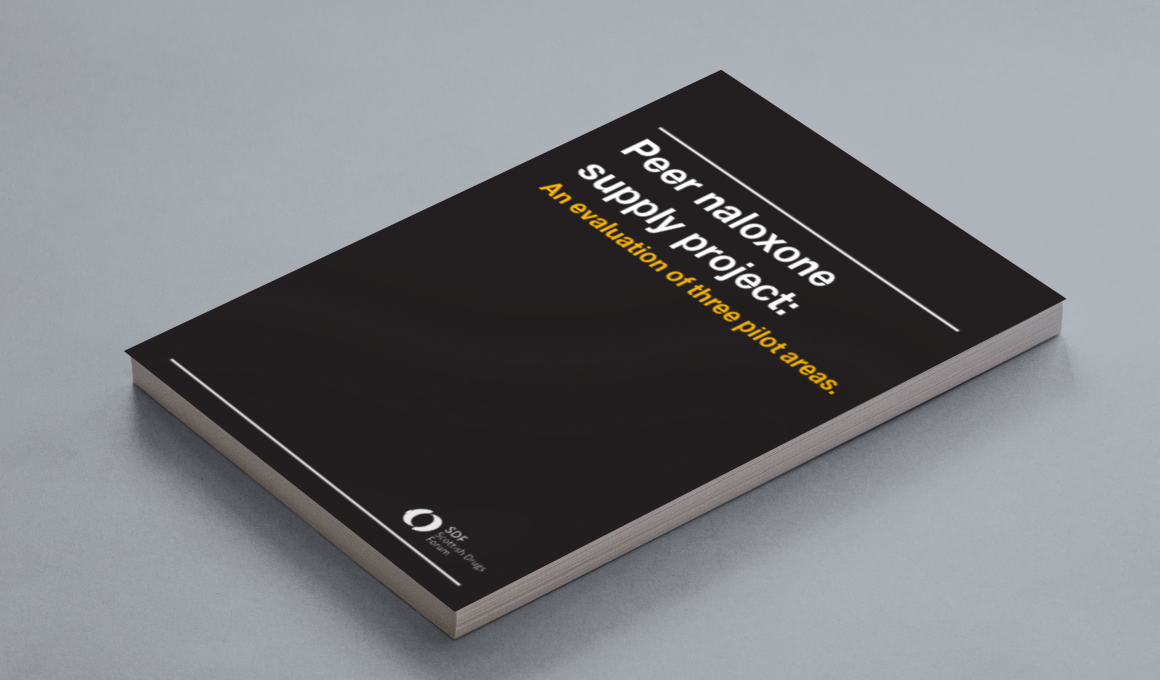10 March 2023
A new report published by SDF shows the evaluation of the peer-to-peer naloxone programme within three pilot areas: one prison, one rural, one urban.
The project aimed to establish, embed, and support high quality peer supply of naloxone as a core service across Scotland and ensure those involved in peer supply have an active voice in delivery of naloxone and other harm reduction interventions, including the sharing and promotion of good practice.
SDF worked with these areas and services to recruit peers, deliver training, and support these groups of peers to train others and supply naloxone kits in their localities. Allocated funding to support local staff time and sessional worker payments for peers was acquired and utilised. Peers and staff in these areas were interviewed as part of the evaluation.
Findings show that there were several tangible positive outcomes experienced in all three areas. This peer supply approach increased the number of people trained in naloxone and kits present in prisons and community settings. Beyond this, there were other powerful impacts including, decreased stigma towards peers from staff, development of transferable skills and confidence amongst peers and instances of further opportunities and employment for these individuals.
Wez Steele, Training and Development Officer (Drug Death Prevention) at SDF said ‘It is a privilege to be working alongside people with lived and living experience of drug use to improve access to life-saving naloxone within their own communities. The passion, commitment, and motivation peers show every single day is second to none.’
The evaluation highlights the challenges experienced by staff and peers some these included setting realistic expectations for the peer role, recruitment processes and practicalities/governance issues, and stigma from staff and services about employing workers with living/lived experience and peers, particularly in the initial stages. Encouragingly, the attitudes and responses from staff largely improved as the project progressed, showing that exposure to this type of work involving peers can help to overcome stigma.
SDF’s Samantha Stewart, Research and Peer Engagement Senior Officer highlights that “this report clearly shows the power of peer involvement, not only on increasing distribution of naloxone and saving lives, but on changing attitudes and approaches to work in the field. The evaluation demonstrates that including peers and treating and paying them equally should be a non-negotiable in this and other types of work across the service landscape.”
The report sets out recommendations moving forward with peer naloxone supply projects which include: reducing barriers to employment, paying peers, allocating an assigned staff member with capacity to support peers and the project, setting expectations for peers, preparing services and staff for the introduction of this type of project to increase inclusion and reduce stigma of peers, and long-term funding is needed as the rollout can take some time to get established and start achieving positive outcomes.
The report concludes that with sufficient staff time and resource, including payment for peers, and awareness of logistical and practical challenges, there are no reasons this approach could not be continued in these areas and rolled out in others effectively. There should be a confident assumption that this would contribute even further to the reduction of drug-related deaths in Scotland due to increased naloxone supply and broader efforts for peer inclusion.

